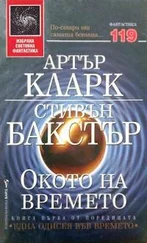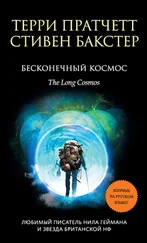It was a time he thinks of as his Dark Age.
But he kept in touch with the studies of the Moon rocks he brought back. It prodded in Jays a lingering interest in geology. He took a couple of night classes, and has done a few field trips. For a while it was just a way to fill up time between Amex commer-cials and daytime talk shows, but he has soon come to know a lot more about his home planet than he ever did about the lonely little world he, and only eleven other guys in all history, have visited. Hell of a thing.
And, gradually, the geology stuff has hooked his imagination.
Death Valley, for instance: if you manage to look beyond the tourist stuff about bauxite miners and mule trains, what you have there is a freshwater lake, teeming with wildlife and flora, that has gotten cut off from the sea. Over twenty thousand years the lake dwindles and becomes more and more saline; the trees and bushes die off and the topsoil washes away, exposing the bedrock, and the lakes' inhabitants are forced to adapt to the salt or die…
His first short story is slight, a tale of a human tribe struggling to survive on the edge of such a lake.
Nods, from the sf enthusiasts in the audience. 'The Drying'.
It sold for a couple hundred bucks to one of the science-fiction magazines, he suspects for curiosity over his name alone. A novel, painfully tapped into a primitive word processor, followed soon after. He hadn't read sf since he was a kid, and now he rediscovered that sense of time and space as a huge, pitiless landscape that impelled him towards space in the first place.
A couple of books later his sales dwindled, when the celebrity angle wore off. But then they started to pick up again, and he is pleased with that, because he suspects people are starting to buy his fiction for itself, not because of him.
He doesn't say all this to his audience, however. But they probably know it. His life is a matter of public record, after all.
Are you arguing for a return to space, in your books?
'I guess so. I think we need to be out there. You don't need to know much geology to see that ... In a few thousand years the ice will be back, scraping the whole damn place down to the bedrock again, and I don't know how we're proposing to cope with that. And then there are other hazards, further out…'
The next big rock. The dinosaur killer.
'It's on its way, maybe wandering in from the Belt right now, with all our names written on it… But I'm not propagandizing here. This is just fiction, right? I want your beer money, not your vote.'
Laughter.
Do you feel bitter about the big shut-down that happened after Apollo? Do you blame the Confucians, or the eunuchs?
That question, from a little guy in a battered anorak, throws him. But he remembers that odd Chinese-looking design in the stained glass in that peculiar chapel, and he wants to pursue the point. But the little guy starts to lecture about the Ming Dynasty, and the bookstore owner moves them on.
After an hour or so, the owner winds up the q-and-a. He signs maybe a dozen copies of the new book, and some stock, and a couple of battered paperback editions of the older stuff.
Before dinner, the store owner takes them to a pub called the Wellsian. 'I thought you'd like to see this…' Bizarrely, it is an H.G. Wells theme pub, with mock-ups of the Hollywood Time Machine and Martian tripods stuck over vaguely Victorian decor. There is a bar menu which, though containing the usual bland rubber-chicken options, nevertheless has each dish referenced to
Wells: 'H.G. Tagliatelle', or 'Herbert George's Chicken Kiev', and so on.
He has his picture taken under an engraved line from First Men In The Moon, about a Moon-calf - a word which, the bookstore guy tells him, is actually an old English word meaning something like blockhead, and which gives him an opportunity for more gentle joshing.
Alice seems to be trying not to laugh. 'It's the weirdest place I've ever seen,' she says. 'H.G. Wells had nothing to do with Hereford.'
'Nor does basalt.'
Jays accepts a diet soda. The little guy from the q-and-a, who'd talked about China, is here, cradling a pint of some flat English beer. His name, it turns out, is Percy, he is aged maybe fifty, and he works with the Cathedral's collection of rare books. His clothes have a vaguely musty smell, not necessarily unpleasant. When he speaks his voice is something of a bray, and the other locals tend to look away and change the subject; he is evidently something of a local eccentric.
Nevertheless he isn't bugging Jays, and he seems to know all about China. Jays lets him open up about his eunuch reference.
Once, says Percy, the Chinese led the world in technology: they had printing, gunpowder, the compass, in some cases centuries before Europe. At the time of the early Ming Dynasty, in the early fifteenth century, they even went exploring.
They built fifteen-hundred-ton 'treasure ships', each big enough to carry five hundred men. Chinese explorers rounded southern Asia to Bengal, Ceylon and even reached the east coast of Africa in 142.0, prefiguring the Portuguese expeditions by fifty years. The ships brought home exotic novelties - people, animals, plants -and struck terror wherever they landed.
'The great voyages were led by Admiral Zheng-Ho,' says Percy, 'who was a eunuch. But in 1436 a new emperor came to the throne, called Zheng Dung. He cut the building of ships, the construction of armaments and so forth. The Navy fell apart, and China was isolated from the rest of the world, until the barbarians from Europe came sailing up four centuries later. There are obvious resonances for our times -'
'Yeah,' growls Jays.
'The cause of it all was conflict between the Confucian scholars who ran the imperial bureaucracy, and the Grand Eunuchs of the
Imperial Court. The eunuchs' voyages were seen as a threat to the bureaucracy. But the Confucians were in charge of educating the emperor and they had played a long game. They had convinced the young Zheng Dung that China was self-sufficient, and didn't need to deal with the barbarian lands at its rim. So they blocked technological development, to maintain their feudal power…'
Some of the other fans, sensing the implicit approval Jays is bestowing on Percy, are edging closer. They start to speculate, as Jays has learned fans will do, about what-if parallel universes in which the Chinese kept going. Perhaps Francis Drake would have faced an Armada of Chinese treasure-ships. Perhaps Zheng-Ho might have reached America before Columbus. And so on.
Jays asks Percy what happened to Zheng-Ho. He shrugs, almost spilling the beer he has barely sipped. 'There are stories that he went off to the hinterland and tried to keep exploring, with technologies out of the grasp of the bureaucrats. China is a big country, after all; there was room for such things. And room for a lot of legends. Zheng had followers, who are supposed to have kept up the work after his death, until the Confucians closed them down. It's probably all apocryphal. Man-carrying rockets, for instance.'
There is general laughter at this, and there is more speculative chatter about a Chinese space programme of the fifteenth or sixteenth centuries.
Jays is reminded of what he once knew of the history of rock-etry. The Chinese developed the first rockets around the year 1000 A.D., under the Sung Dynasty: the versions that leaked to Europe via the usual trade routes were just crude affairs, gunpowder-filled bamboo or pasteboard tubes with little power and unpredictable trajectories… Still, reflects Jays, in the heart of China, there might have been five centuries of development of this technology by Zheng-Ho's day.
There is also, it seems, a Chinese legend local to Hereford: of a sixteenth-century traveller from Spain who came here with what sounds like a goods caravan, laden with exotic jewellery and herbs, all, he claimed, from the heart of mysterious Cathay.
Читать дальше
Конец ознакомительного отрывка
Купить книгу
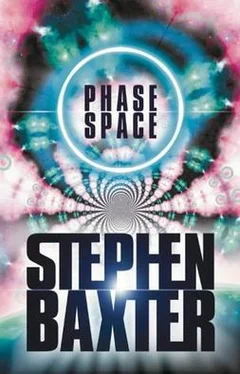
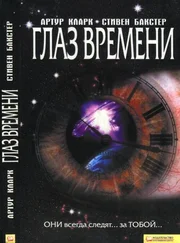

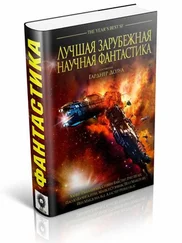
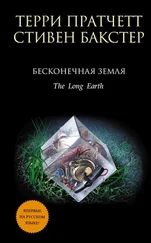
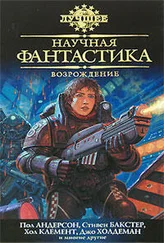


![Стивен Бакстер - Бесконечный Космос [litres]](/books/415680/stiven-bakster-beskonechnyj-kosmos-litres-thumb.webp)
